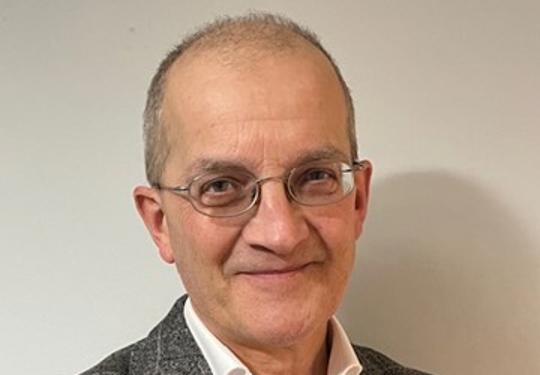The Royal College of Physicians has appointed consultant public health physician Dr Chris Packham as special adviser on population health.
Dr Packham, an associate medical director at Nottinghamshire Healthcare NHS trust, practising inner city GP and former director of public health in Nottingham, has a special interest in designing and prioritising health and care pathways, supporting clinical involvement at a local level to improve population health, and reducing health inequalities.
In his new role, he will inform the RCP’s work to campaign for tackling the social determinants which contribute to poor health and health outcomes in the UK, reducing health inequalities across populations, including by enhanced access and update of effective health and care services.
Dr Packham commences in the role from Friday 07/02/25, as Professor Carol Brayne CBE demits after three years in the role.
Dr Chris Packham, RCP’s population health special adviser, said:
'As I begin my new role, I look forward to building on the RCP’s excellent work, led by Professor Brayne, including calling on the government to deliver a comprehensive cross-government strategy to reduce health inequalities, supporting physicians with the tools and knowledge they need to play their part in improving population health, and harnessing the expertise of our members to drive meaningful change for patients and communities across the UK.'
In December 2024, the RCP published guidance to help clinicians and NHS organisations embed action on health inequalities within their work. This guidance offers practical steps for making health equity a strategic priority, ensuring healthcare can contribute to reducing inequalities rather than reinforcing them.
A member of the RCP’s Health Inequalities Advisory Group since 2021, Dr Packham has been involved in the work the college has done to support national policy approaches that address the wider determinants of health.
The RCP has long called for a full government approach to reduce health inequalities, emphasising that responsibility must be shared across all government departments, not just the Department of Health and Social Care.
Health inequalities remain stark across the country. For example, boys born in Blackpool can expect just 53.3 years of healthy life, compared to 71.9 years for those born in Richmond-upon-Thames – a shocking disparity of 18.6 years. Physicians across the NHS see the consequences of these inequalities daily.
In 2023, RCP polling found that over half (55%) of consultant physicians had seen an increase in ill health due to social and economic factors, with almost a quarter (24%) reporting that the majority of their workload was related to illnesses linked to social determinants.
Dr Packham added:
'Much of the government’s response has focused on the immediate pressures facing the NHS. However, we must also address the broader factors that contribute to these challenges. Population health looks beyond the individual to identify patterns and develop strategies that improve health outcomes for entire communities.
'Approximately 80-90% of the factors that influence public health lie outside the healthcare system – including housing, education, employment, poverty, access to green spaces, and air quality. “The recently announced 10-Year Health Plan emphasises shifting care from hospitals to communities, embracing digital transformation, and focusing on prevention. Achieving these goals requires a fundamental shift in how we tackle ill health at a population level – a change that is long overdue.'





